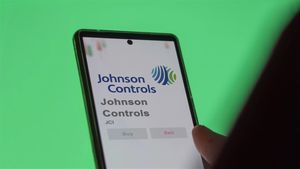
SPONSORED CONTENT -- (StatePoint) Recent data indicate that over 60% of fourth graders in the United States are reading below grade level, with performance particularly low due to the lingering effects of the pandemic. The good news? Learning experts say that the trend is reversible. One key factor is to make sure that young children have a strong foundation in early language skills when they begin kindergarten. Here are a few tools and ideas for supporting the literacy journey at home and on-the-go:
Make Reading Playful
Interactive learning tools can go beyond drills and practice and make learning fun while building confidence and independence. The LeapStart Learning Success Bundle system, for example, features touch-and-talk pages that work on key skills like phonics, vocabulary, counting and problem solving. The attached smart stylus is designed for young kids’ hands and a carrying handle makes on-the-go reading adventures possible. The system comes with an interactive storybook based on the popular animated series, Go! Go! Cory Carson, and an activity book that introduces early skills like letters, numbers and more. Sold separately is an expansive library of compatible books covering preschool through first grade subjects.
“Tapping to hear words sounded out helps children gain independent reading skills and an understanding of how print works,” says Dr. Clement Chau, vice president of learning at LeapFrog. “Getting kids excited about reading through play helps set the stage for reading success before kids even learn how to spell words.”
When teaching children to read, one technique that teachers like to use is to slide a finger below each word in a sentence as it is read aloud. This helps young children connect spoken words with words on a page. Slide-to-Read ABC Flash Cards are double-sided cards that fit into a screen-free tablet with special sensors so kids can explore letters, words and colorful pictures with the touch of a finger. Kids can even slide their fingers below the printed sentences to hear each word read aloud, just like how a teacher might do it in a classroom.
A strong foundation for reading starts with knowing the letters and letter sounds. One toy that introduces these essential skills is Mr. Pencil’s Scribble, Write & Read. Using the included stylus, kids can trace dotted lines to write numbers, lowercase letters and uppercase letters. In addition to finding letters to build words, kids can slide Mr. Pencil across the screen to sound out new words, or free-draw anything they can imagine to inspire their creativity.
“By practicing stroke order and hearing letter sounds aloud, children will begin to map letters to the sounds they represent,” says Chau.
Story Time
One other simple way to build reading fundamentals is by making your child a card-carrying member of the library. Most public library systems have dedicated children’s librarians who run programming and events designed to entertain and educate kids of all ages, while developing a lifelong love of reading. In addition to programs such as seasonal reading challenges and story time, some branches also provide free homework help and host events for kids covering everything from STEM topics to music and art. Be sure to check out books with every visit!
Dr. Chau also recommends checking in with your child’s teacher periodically to assess their progress in school and to learn how you can support your child at home.
“A lot of what it takes to prepare your child for future reading success can be supplemented outside the classroom, particularly with recommendations from the teacher,” says Chau.
*****







